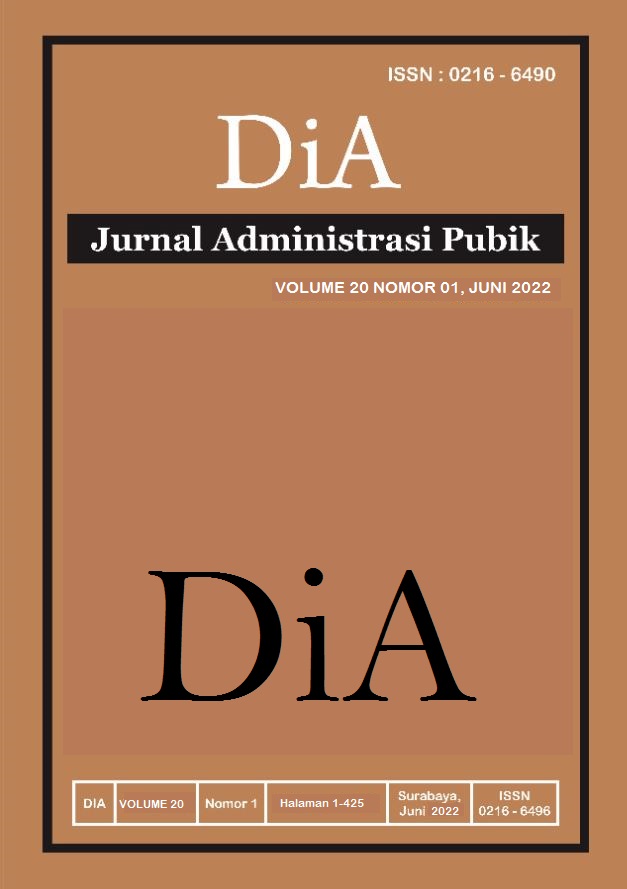PUBLIC PRIVATE PARTNERSHIP IN THE DEVELOPMENT OF PUBLIC TRANSPORTATION IN THE CITY OF SURABAYA
DOI:
https://doi.org/10.30996/dia.v20i01.6028Keywords:
Public Private Partnership, New Public Management, Infrastructure, TransportationAbstract
This study discusses the implementation of public-private partnerships in Surabaya in the development of transportation infrastructure. The Surabaya city government has been exploring the construction of mass transportation in the form of trams since 2010 but until now the construction of the tram has not started. The method in this research is descriptive qualitative where data collection uses literature study and analyzed using the concept of public private partnership. The results of this study indicate that the implementation of public-private partnerships in local governments is less successful. This is because the resources owned are still very limited so that many developments are stopped in the middle of the road. In addition, the implementation of public-private partnerships in developing countries is still using the traditional system. From the outside it uses the new public management but from the inside it still uses the traditional system.
Downloads
References
Kettl, d. F. (2005). The global public management revolution: a report on the transformation of governance. Brookings institution press. Washington.
Mahmudi, m. (2005). Manajemen kinerja sektor publik. Akademi manajemen perusahaan ykpn, yogyakarta.
Ni, a. Y. (2012). The risk-averting game of transport public-private partnership: lessons from the adventure of california's state route 91 express lanes. Public performance & management review, 36(2), 253-274.
Osborne, d., & plastrik, p. (2004). Memangkas birokrasi: lima strategi menuju pemerintahan wirausaha. Penerbit ppm. Jakarta.
Osborne, d., & gaebler, t. (1995). Mewirausahakan birokrasi: reinventing government, mentransformasi semangat wirausaha ke dalam sektor publik. Pustaka binaman presindo, Jakarta.
Purwanti, N. D. Kemitraan publik swasta (Kebijakan Publik dan Pemerintahan Kolaboratif, Isu-Isu Kontemporer). Yogyakarta: Center for Policy & Management Studies FISIPOL Universitas Gadjah Mada. Hal 178 (2016)
Rahaju, t., ma’ruf, m. F., kurniawan, b., & pradana, g. W. Penerapan etika layanan dalam perspektif kolaborasi governance pada perusahaan daerah air minum surya sembada meirinawati.
Robertson, P. J., & Choi, T. Ecological governance: Organizing principles for an emerging era. Public administration review, 70, s89-s99 (2010).
Utama, d. (2010). Prinsip dan strategi penerapan “public private partnership” dalam penyediaan infrastruktur transportasi. Jurnal sains dan teknologi indonesia, 12.
Zhang, x., & ali soomro, m. (2015). Failure path analysis with respect to private sector partners in transportation public-private partnerships. Journal of management in engineering, 32(1), 04015031.
https://nasional.sindonews.com/read/957366/149/proyek-monorel-resmi-dihentikan-1422509062
Downloads
Published
How to Cite
Issue
Section
License
The DiA journal allows authors to retain the copyright of their papers without limitation. Authors may grant publishers non-exclusive publishing rights to publish articles. Granting first publishing rights to publishers also qualifies as unlimited copyright (because there are no restrictions imposed by publishers on author copyright).







